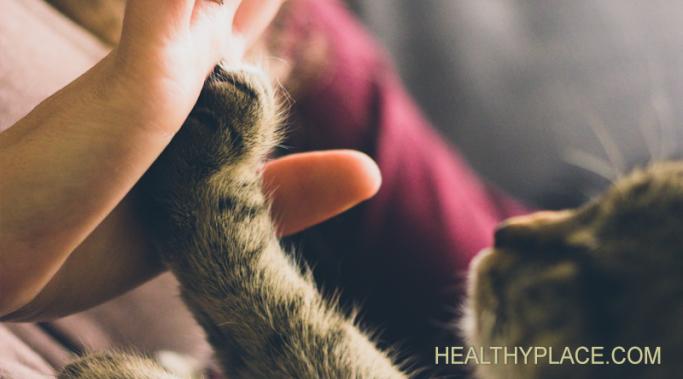Blogs
I have a confession to make--I am almost incapable of calling a crisis hotline, no matter how bad I feel. I flip open my cell phone, stare at the screen, flip it shut, flip it open again, start to dial the number, stop and flip it shut, on it goes. It can take me up to half an hour to call a crisis hotline. I have no clue why I do this.
And I'm not the only person who does this. According to IMAlive.org, more than 30 percent of people who call a crisis hotline hang up as soon as they hear a voice. Maybe you're one of these people. Did you know you have the option to chat online about your problem?
Finding healthy alternatives to self-injury can be stressful. Sometimes, it’s tough finding someone who understands the emotions and thoughts connected with self-harm. Many people hate thinking about counseling or talking about their self-harm because, well, it is too personal.
So, if you’re too nervous to jump into therapy or tell someone you self-injure, where can you go? What can you do?
Why not dive into a good book? A TV show? A movie?
I have always felt different from everyone else, alienated, alone. As a young child, I would react to things, even tiny things, in such intense ways, and I would look at other people and wonder: did they feel things this strongly, too? Did they fall to the ground crying when they saw a dead butterfly on the sidewalk? Or have sudden intrusive thoughts of swerving and crashing their car in a wall?
A veteran with PTSD considers living in a van in New Hampshire with his wife, two small children, and two large dogs. He can't find housing that will accept the dogs he can't live without. A peer specialist fails to get a homeless woman with a psychiatric disability into a shelter because she won't be separated from her cat. A woman with bipolar disorder pays hundreds of dollars each year in illegal fees to keep the cat who helps her sleep. These people are real. Their needless suffering and expense occurred because few people understand our rights under the Fair Housing Act (FHA).
In my case, I never really had a formal sit down discussion with my parents about my eating disorder. I started eating disorder recovery in my mid-twenties, long after I had moved out. By then, I had graduated from law school and the time felt right. I told each parent separately about my eating disorder (they are divorced), and as uncomfortable as the conversation was, surprisingly, their reaction was one of relief. All along, they had known something wasn’t quite right regarding my eating habits and body image, and they also knew I’d had my gallbladder removed a couple of years earlier. So to them, as much as I tried to hide it, they knew something didn’t add up, but they just didn’t know what. (read: How To Tell Your Parents About Your Eating Disorder)
Ah, yes, categories. When first diagnosed with a mental illness, many of us already feel as though we are suddenly defined by our illness. We immediately need to drastically change our lives. That's tough enough but, more often than not, we also have to explain to those in our lives that, yes, we have been diagnosed with a mental illness, but we are still the same person. You and I both know that this isn't easy, but it is a great way to weed out those who will support you and those who may not.
While it seems hard to believe, some people want others to stay mentally ill and, indeed, sometimes even individuals themselves, choosing to maintain mental unwellness. You have the obvious example of people refusing medication and thus becoming very sick but there are other forces as well that can encourage a person to stay acutely, mentally ill.
This is a misleading title perhaps. What I want to talk about today are Legos and games of all sorts. I want to talk about adult ADHD and boredom and what can bring relief. I want to talk about having fun when fun can't be had and all sorts of interesting thing. And, I want to talk about whether rules make fun more fun or less fun. Let's get started!
When life's highs are followed by inexplicable lows, the clinically depressed person has the hardest of times.
As I mentioned in my About Me blog post, my battle with depression is ongoing. I lay in the trenches, at the ready for when my brain decides to ambush me with yet another volley of chemical scud missiles.
Boredom can last for hours. ADHD-Related boredom can last for days, weeks, etc. And, there are things we can do to address it. Turn on the tunes or bust out some brain-stimulating games and see things go from boredom to less-boredom!






![MP900405644[1]](/sites/default/files/styles/blog_listing/public/uploads/2013/06/MP9004056441-1024x685.jpg?itok=sLTFbNTj)

![Black Hole Image courtesy of [image creator name] / FreeDigitalPhotos.net](/sites/default/files/styles/blog_listing/public/uploads/2013/06/ID-10073348.jpg?itok=hYhc8ojB)